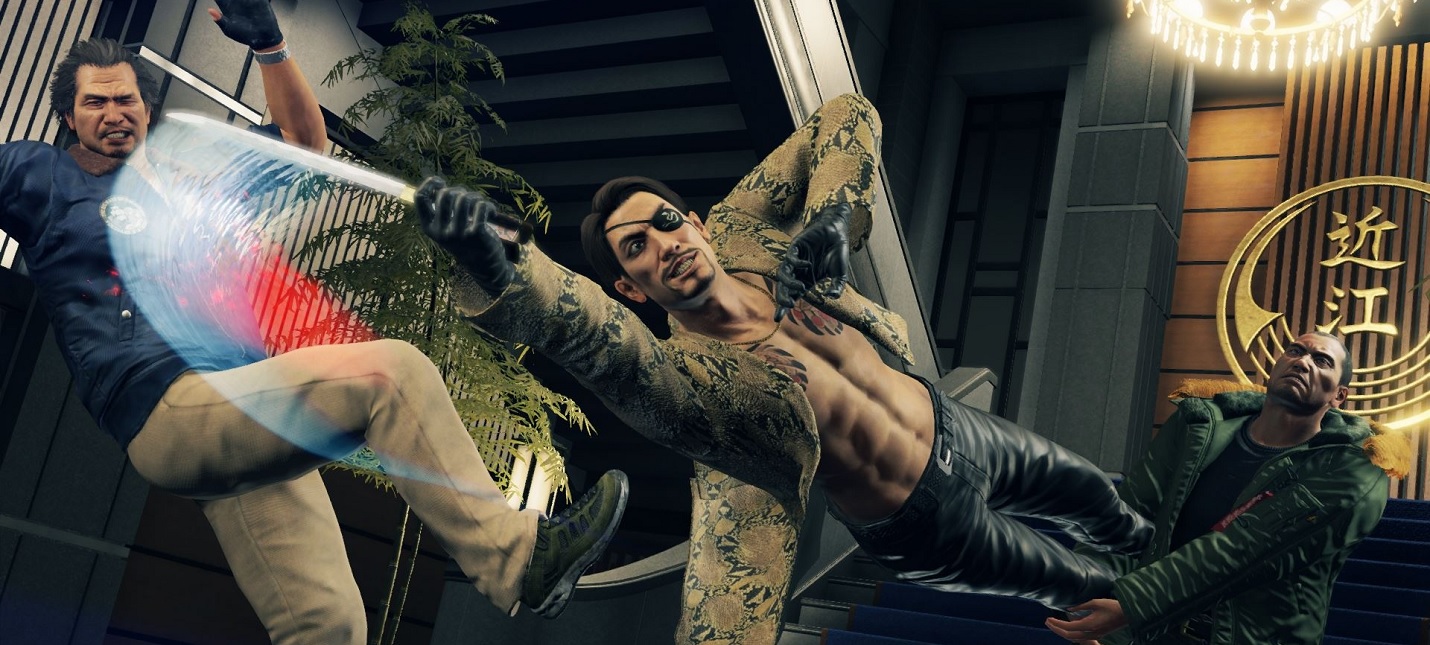After the conclusion of the series' previous anthology with Yakuza 6, there were big Kiryu-sized shoes to fill. As our new protagonist Kasuga Ichiban steps into the spotlight for Yakuza: Like a Dragon, developer RGG Studio proves it can still capture its signature blend of gripping melodrama and absurdist humor while creating something genuinely fresh for the long-running franchise. The reinvention isn't just in the transition from action-brawler to turn-based combat, which is a great take on traditional RPG battles. It's that the party dynamic in Like a Dragon enables a new kind of storytelling that the series hasn't explored before, one that focuses on the power of embracing friendship and fighting together every step of the way.
Like a Dragon starts anew, providing an entry point for those who have never played a Yakuza game before. But it wouldn't be a proper series entry without the core tenets that define Yakuza--things like captivating exposition-heavy cutscenes, exciting over-the-top fights, and a wealth of side activities that flood the streets of a lifelike Japanese city. In true Yakuza fashion, the tangled web of alliances, betrayals, secrets, and shifts in power across different organizations serve as the foundation for much of its character-driven story. And it's as sweet as ever here.
Ichiban has a familiar background: born from nothing, scraping by in Kamurocho until a father figure with yakuza ties digs him out of serious trouble. Ichiban's life revolves around that man, Masumi Arakawa, and he eventually follows in his footsteps by pledging himself to the Tojo Clan. Much of what propels Like a Dragon is the connection these two share--from Ichiban taking the fall for a family crime to uncovering why he'd been left for dead in another city after his 18-year prison sentence. Things change in time, and that good-natured kid who grew up loving Dragon Quest (literally in-lore) and doing harmless errands for the gang now has a lot to learn about the criminal underworld as he re-enters society.
Loud, goofy, naive, but always well-meaning, Ichiban sometimes lets his immaturity get the best of him. Others are there to help him learn and grow, and he never wavers in his dedication to the people around him. It rubs off on his companions, whose circumstances unite each of them as you unravel the mystery behind Ichiban's exile to Ijincho, Yokohama (where most of the game takes place). Your core squad of Adachi, Nanba, and Saeko enter the scene for their own reasons--Adachi is the ex-detective whose goal is tied to yours, Nanba is the homeless man who saved your life and has more to him than he lets on, and Saeko is the barmaid who reciprocates the unconditional support she gets from the crew after a personal tragedy.
Sometimes their motivations for sticking around for Ichiban's messy yakuza business aren't always convincing, but over time, the friendships they form become all the conviction they need. The familiar theme of deep emotional bonds is what Like a Dragon uses to bring something new to the series' strong, established style of storytelling--the party system isn't just an excuse to provide you with a team during the RPG combat. Throughout the story, the cast gets into trouble, fights their way out, drinks, and celebrates together, and they carry each other to the end. Much of the Yakuza series thus far was about the struggles of Kazuma Kiryu, a man who has a heart of gold, yet always kept everyone at arm's length. Like a Dragon, however, flips the script and explores the power of letting people in, and it embraces the uplifting social dynamic its characters create.
Each main cast member has their own life stories to tell and gets a bit of the spotlight with Ichiban throughout the main campaign. But some of the more personal moments come through in what are called Drink Links--basically Persona-style social link scenarios where party members open up about their personal lives over glasses of whiskey at their home bar called Survive Bar. You increase a bond rating with them, improve social stats, and unlock combat perks along the way; more importantly, you really get to know the characters who are fighting alongside each other.
For RGG Studio's first crack at an RPG, it's a damn fine result. It delivers what I love most about Yakuza and introduces new ideas that largely pay off. Ichiban isn't doing it alone, either. He has friends and mentors, ones who've helped him fight and overcome personal tragedies. It was an absolute thrill to watch him grow, and that's what's most important for a game so focused on its characters. Yakuza: Like a Dragon is a passing of the torch, and a fantastic entry in a beloved franchise that proves that it's in good hands with Kasuga Ichiban.


